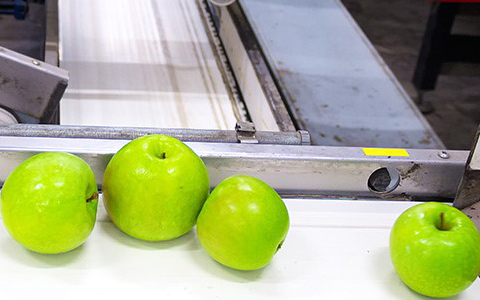A boost for efficient safe food production
Background
Project: RESFOOD
An EU-funded project has developed innovative technologies and techniques for recycling water, nutrients and by-products along the food supply chain – from horticulture to processing and on to shop shelves. These advances add up to big savings for producers and manufacturers, increase competitiveness, and benefit the environment.

A lot of natural resources – such as water, minerals in fertilisers, soil, and energy – go into crop cultivation and food processing to deliver the fruit and vegetables we eat. But this supply chain is very inefficient.
Some 20-50% of the nutrients and 30% of all food produced in Europe is wasted along the way, says researcher Willy Van Tongeren of TNO, the Netherlands-based organisation for applied scientific research and the coordinator of EU-funded project RESFOOD.
The project brought together research and industry partners to demonstrate ways the vegetable and fruit chain could recover valuable nutrients for reuse, reduce water use by 30-70%, achieve energy savings of 20-80%, and cut waste without any reduction in food quality and safety.
The three-year project has developed techniques to cultivate crops using recycled water and nutrients, and an industrial washer that dramatically reduces the amount of water needed to clean fresh-cut vegetables and fruit.
The project is also testing greener chemicals for disinfecting vegetables, processes to retrieve valuable nutrients from food waste, and a prototype device to detect food pathogens in less than two hours.
From the lab to the field
RESFOOD has scaled up the technologies and techniques it developed to field testing. In horticulture, the project developed a system to grow hydroponic crops in rows of gutters filled with water and nutrients. Instead of discharging used water, the system applies novel filtration techniques to remove accumulated salt and other contaminants. Nutrients such as potassium and nitrates are also recycled to reduce fertiliser consumption.
Partners are currently testing these technologies to grow hydroponic tomatoes using the gutter system in the Netherlands, and blackberries in Spain. Initial results indicate overall water use was cut by 35% on average, while fruit quality and yield was maintained, says Van Tongeren.
Washing fresh-cut produce
For processors of fresh-cut produce, RESFOOD has provided a new washing machine that reduces water and energy use by 25-50%, Van Tongeren says. The machine uses membrane filtration to clean the water, which is then reused.
For most cut produce, the wash water temperature is cooled to about 2-4°C to maintain freshness and limit bacterial growth. Reusing the already cooled water means less energy is spent to maintain temperature after it is filtered compared to cooling down a new vat of wash water.
Vega Mayor in Spain is testing the washer in a processing plant to clean pre-cut, ready-to-use salad. Kronen in Germany plans to put the first machines on the market shortly. Netherlands-based Vezet is testing a water recycling system on freshly chopped vegetables, by combining existing technologies. If the tests are successful, the system could be introduced to the market soon, says Van Tongeren.
New chemicals for disinfecting produce
In parallel, RESFOOD’s partners are testing a peroxyacetic, acid-based sanitiser and chlorine dioxide as alternatives to the chlorine wash widely used as a disinfectant. Industry faces increasing pressure to find alternatives to chlorine – which is currently banned as a wash for produce in some European countries, including Germany, the Netherlands, Switzerland and Belgium.
Vegetable and fruit processors will also be able to take advantage of the tests RESFOOD has carried out on technologies to recover valuable materials from by-products, such as carotenoids, alkaloids, pectin and polyphenols.
The results are promising for extracting by-products from processing endives, carrots and apple pomace. Other by-products can be used for animal feed or to produce bioenergy.
Fast pathogen detector
RESFOOD also developed a prototype fast detection device for food pathogens, to help producers and processors maintain safety. Conventional testing can take up to one day to deliver results – smaller processors often have to send samples to a lab outside their premises. The RESFOOD device is designed to be used on a production line, representing huge time and cost savings for farmers and processors. The device needs further development before it is ready for the market, says Van Tongeren.
Summing up he adds: “These new technologies and technologies add up to market opportunities for small businesses. They will also boost consumer confidence in sustainable food production and food safety.”
Water treatment pilot unit at TNO, Netherlands
This innovation was made possible by Israel’s continued participation in the official Horizon 2020 fund, managed in Israel by ISERD part of The Israel Innovation Authority (Formerly the Office of the Chief Scientist and MATIMOP). The initiative has taken Israeli R&D to the next level with the help of ground-breaking collaboration between scientists in Israel and Europe, as well as essential funding and support.
Project details
Project acronym: RESFOOD
Participants: Netherlands (Coordinator), Spain, Israel, Belgium, Turkey, Germany
Project Reference N° 308316
Total cost: €5 990 968
EU contribution: €4 335 900
Duration: November 2012 – October 2015
